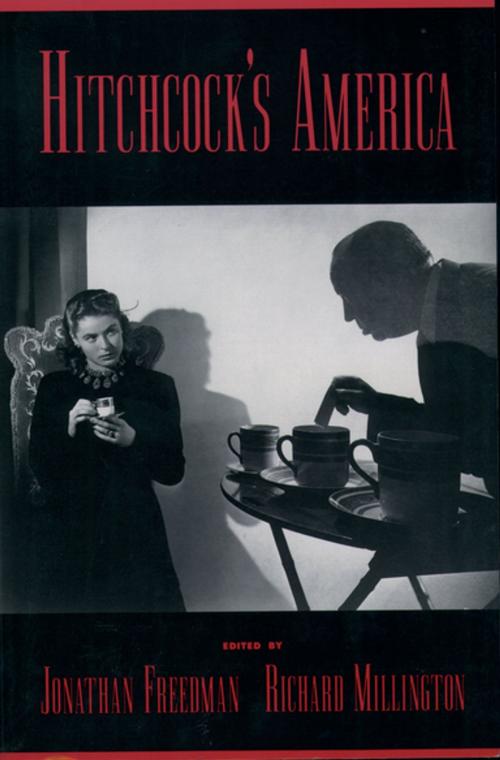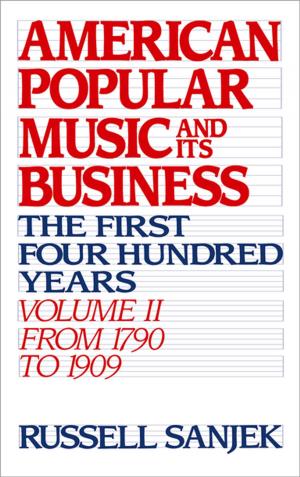Hitchcock's America
Nonfiction, Entertainment, Film, History & Criticism, Performing Arts, Social & Cultural Studies, Social Science, Cultural Studies, Popular Culture| Author: | ISBN: | 9780199923656 | |
| Publisher: | Oxford University Press | Publication: | February 25, 1999 |
| Imprint: | Oxford University Press | Language: | English |
| Author: | |
| ISBN: | 9780199923656 |
| Publisher: | Oxford University Press |
| Publication: | February 25, 1999 |
| Imprint: | Oxford University Press |
| Language: | English |
Alfred Hitchcock's American films are not only among the most admired works in world cinema, they also offer some of our most acute responses to the changing shape of American society in the 1940s, 50s, and 60s. The authors of this anthology show how famous films such as Strangers on a Train, Vertigo, North by Northwest, and Rear Window, along with more obscure ones such as Rope, The Wrong Man, and Family Plot, register the ideologies and insurgencies, the normative assumptions and the cultural alternatives, that shaped these tumultuous decades. They argue that, just as these films occupy a visual landscape defined by the grand monuments of American civic life--Mt. Rushmore, the Statue of Liberty, the United Nations--they are also marked by their preoccupation with the social mores and private practices of mid-century America. Not only are big-city and suburban life the explicit subjects of films like Rear Window and Shadow of a Doubt, so are the forms of experience that emerge within these social spaces, whether the urban voyeurism examined by the former or the intertwining of banality and violence depicted in the latter. Indeed, just about every form of American life that was achieving social power at this time--the national security state; the science and art of psychoanalysis; the privileging of the free-wheeling, improvisatory self; the postwar codification and fissuring of gender roles; road-culture and its ancillary creation, the motel--is given detailed, critical, and mordant examination in Hitchcocks films. The Hitchcock who emerges is not merely the inspired technician and psychological excavator that critics of the past two generations have justly hailed; he is also a cultural critic of remarkable insight and undeniable prescience.
Alfred Hitchcock's American films are not only among the most admired works in world cinema, they also offer some of our most acute responses to the changing shape of American society in the 1940s, 50s, and 60s. The authors of this anthology show how famous films such as Strangers on a Train, Vertigo, North by Northwest, and Rear Window, along with more obscure ones such as Rope, The Wrong Man, and Family Plot, register the ideologies and insurgencies, the normative assumptions and the cultural alternatives, that shaped these tumultuous decades. They argue that, just as these films occupy a visual landscape defined by the grand monuments of American civic life--Mt. Rushmore, the Statue of Liberty, the United Nations--they are also marked by their preoccupation with the social mores and private practices of mid-century America. Not only are big-city and suburban life the explicit subjects of films like Rear Window and Shadow of a Doubt, so are the forms of experience that emerge within these social spaces, whether the urban voyeurism examined by the former or the intertwining of banality and violence depicted in the latter. Indeed, just about every form of American life that was achieving social power at this time--the national security state; the science and art of psychoanalysis; the privileging of the free-wheeling, improvisatory self; the postwar codification and fissuring of gender roles; road-culture and its ancillary creation, the motel--is given detailed, critical, and mordant examination in Hitchcocks films. The Hitchcock who emerges is not merely the inspired technician and psychological excavator that critics of the past two generations have justly hailed; he is also a cultural critic of remarkable insight and undeniable prescience.















